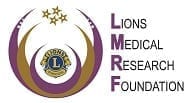Cord blood is the blood that remains in the umbilical cord and placenta after childbirth. It is a rich source of stem cells, which are primitive cells that have the ability to develop into many different types of cells in the body.
Cord blood treats a variety of blood disorders
Cord blood stem cells are used in bone marrow transplants to treat a variety of blood disorders, such as Leukemia and Lymphoma. They are also being studied for their potential to treat a range of other conditions, such as diabetes, cerebral palsy and heart disease.
The benefits
Cord blood stem cell transplants offer several advantages over traditional bone marrow transplants. First, cord blood stem cells can be collected from the cord and placenta without putting the mother or baby at risk. Second, cord blood stem cells are less likely to be rejected by the recipient’s immune system, and third, cord blood stem cells can be transplanted into patients of any age, including infants and children.
Cord blood banking
Cord blood stem cell transplantation is still a relatively new procedure, and more research is needed to determine its long-term efficacy. However, cord blood stem cells offer promise for treating a variety of conditions, and cord blood banking is an increasingly popular option for families who want to ensure that they have access to this potentially life-saving treatment.
Showing real potential
Cord blood stem cells are helping to improve the quality and health of people’s lives and producing promising results. But more research is required.
Would you like to help?
You can by supporting the Lions Medical Research Foundation – Spring Hill, Queensland. Your donation will help support medical research into the benefits of Cord Blood.
